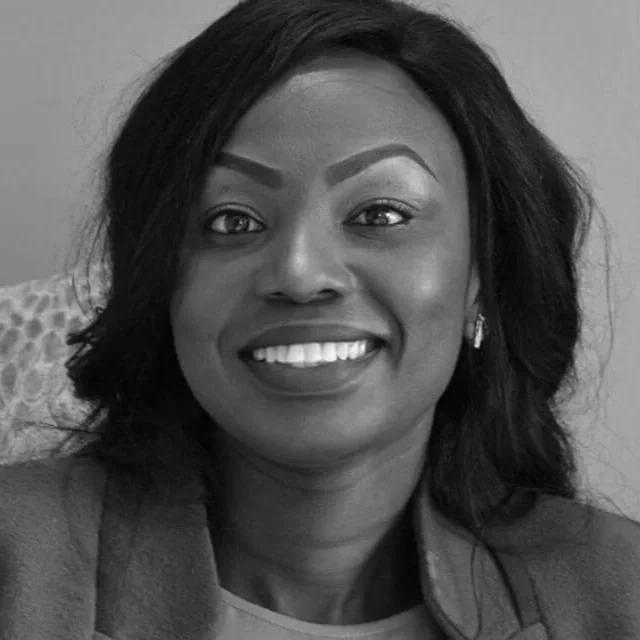Conference
Programme
The Tech Abuse Conference spans three days of learning, connection, and action.
The programme is currently under development — and deliberately so. Tackling technology-facilitated abuse requires a holistic approach: not just academic research from one discipline, not just legislative changes, not just technological fixes, and not just frontline support. It requires all of these together, in conversation with one another.
We are fully committed to designing a programme that:
Brings in diverse voices — across academia, industry, policy, frontline practice, and lived experience
Reaches beyond the Global North — to reflect the global nature of tech abuse
Goes beyond describing problems — focusing on practical solutions, collaboration, and impact
Creates an inclusive space — where participants feel both safe and challenged, and where no single perspective dominates
You can expect a mix of:
Keynotes from across stakeholder groups
Hands-on training with safety technologies from leading companies (Google, Kaspersky, and others)
Academic insights from researchers across disciplines
Policy and regulatory perspectives (including Ofcom and the Mayor’s Office for Policing and Crime)
Survivor-centred insights supported by Refuge and community partners
You can find below our first list of confirmed speakers, however this is not a finalised programme. Instead, it is an open invitation to help us shape it into something useful, relevant, and impactful for everyone working in — or experiencing — the realities of technology-facilitated abuse.
The full conference programme will be published in Spring 2026, following the second round of abstract submissions in Autumn 2025. Stay tuned by registering your interest for more details as the event approaches.
Keynote Speakers
Dr Nicki Dell - Cornell Tech
Dr Nicki Dell is co-founder and co-director of the Clinic to End Tech Abuse (CETA) at Cornell Tech. She is also an Associate Professor at the Jacobs Technion-Cornell Institute at Cornell Tech and in the Bowers College of Computing and Information Science at Cornell University. Nicki works to investigate the impact of digital technologies on underserved communities and build systems and interventions that make our computer-mediated world safer and more equitable for everyone. She works in sustained partnership with affected communities to deepen her understanding of the challenges they face and to devise solutions that respond to both technological and social factors at play. Nicki is the recipient of a MacArthur Fellowship (2024), SIGCHI Societal Impact Award (2023), and NSF CAREER Award (2018). In addition to her work with CETA, she is Director for Technology Innovation for the Initiative on Home Care Work in the Center for Applied Research on Work (CAROW) and was the 2023 Siegel Faculty Impact Fellow for the Public Interest Technology Initiative.
Dr Sunny Consolvo - Google
Dr Sunny Consolvo is a researcher at Google focused on digital safety, where she leads the At-Risk Research Program, developing frameworks and guidance for safer research involving vulnerable populations such as youth, content creators, political actors, and survivors of abuse. She previously led Google’s Security & Privacy UX team and has worked to improve Chrome’s security warnings. Prior to Google, Sunny was a Research Scientist at Intel Labs Seattle, where she explored mobile technologies for health and privacy. With over 20 years in human-computer interaction, she has co-authored 70+ peer-reviewed publications, received multiple awards including the 2022 Distinguished Alumni Award from UW’s iSchool, and was elected to the SIGCHI Academy in 2020. She holds a Ph.D. in Information Science from the University of Washington and is a Certified Information Privacy Professional.
Cecilia Maundu - Broadcast Journalist and Digital Safety Trainer
Cecilia Maundu is a broadcast journalist, digital rights researcher, and digital security expert who works at the intersection of journalism, technology, and human rights. As an African Union Media Fellow, she focuses on combating tech-facilitated gender-based violence, particularly against women journalists and marginalized groups, while advocating for freedom of expression in digital spaces. Her work bridges the gap between media practice and digital rights advocacy, providing journalists, activists, and youth with the tools to navigate online threats, protect their digital identities, and engage responsibly online. Through her trainings across Africa and beyond, she promotes cyber hygiene, digital safety, and ethical technology use. Cecilia is also the creator and host of the Digital Dada Podcast, where she amplifies critical conversations on digital security, feminist technology, and the realities of online violence—advocating for a feminist internet that recognizes tech-facilitated abuse as real violence and strives to create safer, more inclusive digital spaces.
Confirmed Speakers
Domestic Abuse Commissioner’s Office for England and Wales
The Domestic Abuse Commissioner for England and Wales is the independent voice for victims and survivors of domestic abuse.
Dame Nicole Jacobs was appointed in 2019 as the first Domestic Abuse Commissioner and was reappointed for her second three-year term in 2022. Since her appointment to the role of Domestic Abuse Commissioner in September 2019, Nicole has begun energetically putting her 30 plus years of experience in domestic abuse policy and intervention to work, driving improvements to transform the response to domestic abuse in England and Wales. She is committed to championing victims and survivors of all ages, status, and backgrounds, and to shining a light on practices that fail them.
Lindsey Scott - Ofcom
Lyndsey Scott is a policy manager working in Ofcom’s Women and Girls Online Safety team. She worked on Ofcom’s guidance on a life online for women and girls, which outlines where tech companies should take stronger action to prevent gender-based harms online. Lyndsey has a master’s degree in AI Ethics and Society from the University of Cambridge and has previously published work on intimate image abuse. Prior to joining Ofcom, Lyndsey worked in the tech industry as a senior software engineer.
Emma Pickering - Refuge
Emma Pickering is Head of Tech & Economic Abuse at Refuge, where she leads a specialist team supporting women and children experiencing technology-facilitated abuse. Since joining Refuge in 2017, she has played a key role in developing national responses to emerging forms of abuse. Emma holds a BA in Working with Young People and a Master’s in Domestic and Sexual Violence, and is currently undertaking a PhD at Birmingham City University exploring the role of tech-facilitated abuse in domestic homicide. A qualified Domestic Homicide Review Chair and Churchill Fellow, she works closely with policymakers, funders, and external partners to improve frontline services and influence legislation. Emma has completed specialist training with SafetyNet and IRIS, and previously worked internationally to help end Female Genital Mutilation in The Gambia. She is a passionate advocate for survivor-centred approaches and ensuring services keep pace with the realities of abuse in the digital age.
tèmítópé lasade-anderson is a Nigerian-British-Canadian writer and researcher. She is the Executive Director at Glitch, and is completing her PhD on Black women’s digital intimacy in the Department of Culture, Media and Creative Industries at King’s College London. tèmítópé’s research interests are digital intimacies; Black feminisms, racialisation and gender on social media; diaspora; and platform governance. She is currently a 2025 affiliate at DISCO Network's Black Communication & Technology Lab, and was a Fellow at the Centre of Advanced Internet Studies in 2024. In 2023, tèmítópé was the inaugural research curator-in-residence at the Foundation of Art and Creative Technology, working on Black Futures. tèmítópé’s work has been published in academic journals (Feminist Media Studies; Television and New Media, and Journal of Global Black Thought) and independent media (DADDY Magazine; The Canary).
tèmítópé lasade-anderson - Glitch
Alexandra Robinson - United Nations Population Fund (UNFPA)
Alexandra Robinson serves as the Gender-based Violence Technical Advisor for UNFPA, based at Headquarters in Nairobi. A lawyer by background, she holds experience working across humanitarian, peace and development settings within a number of United Nations agencies, civil society and Government across the Asia-Pacific and Africa regions. She holds a masters degree in International Law as well as double degrees in Law and Social Sciences.
Claire Hammond - National Centre for Violence Against Women and Girls and Public Protection (NCVPP)
Claire Hammond brings over 20 years of policing experience with Lincolnshire and Derbyshire Police, specialising in Public Protection and leading complex safeguarding investigations. A qualified Senior Investigating Officer, she has commanded high-risk operations as a trained Firearms and Public Order Commander. Her career spans neighborhood policing, custody, and operational support, including firearms and roads policing. During COVID-19, Claire served as Criminal Justice Lead, driving innovation and later contributing nationally through the NPCC, where she developed the PIP1 Supervisor Programme with the College of Policing to strengthen investigative leadership across UK forces.
In January 2025, Claire joined the NPCC Violence Against Women and Girls (VAWG) Taskforce under ACC Sam Millar, later becoming VAWG Delivery Lead in May as the Taskforce transitioned into the VAWG Programme within the National Centre for VAWG and Public Protection (NCVPP). The NCVPP, a joint initiative between the NPCC and the College of Policing, places victims at the heart of policing and unites law enforcement, government, and partners to deliver consistent, professional responses to VAWG. Claire’s leadership reflects her commitment to systemic change, professionalising public protection, and tackling national challenges, while also spearheading work on online harms and driving innovation in developing technology and AI within NCVPP.
Hira Azhar - TikTok
Hira Azhar is a Responsible-Tech Ethicist and Strategist who guides the safe and responsible development of emerging technologies at the intersection of AI, innovation, and digital safety who has worked for UNDP, CARE, UN Women and currently TikTok. She focuses on mitigating frontier AI-driven harms and preventing Technology-Facilitated Gender-Based Violence (TFGBV), including non-consensual intimate-image abuse, sextortion, sexual exploitation, and technology-enabled harassment.
As a Product Policy Lead for high-harm issues, Hira designs survivor-centered safeguards and scalable interventions that address AI-mediated abuse across complex digital ecosystems. Her work bridges urgent real-world survivor needs with actionable protections and governance frameworks.
Grounded in a critical Global South perspective, she brings insight into how structural and regional inequities shape digital safety outcomes for marginalized communities, especially for women, children and marginalized communities. Hira translates complex risk environments into practical protections, advocating for technology that prioritizes accountability, inclusion, and human dignity at every stage of its design and deployment.
Home Office Minister
A Home Office Minister from the UK Government will deliver a talk during the conference. Further details will be made available to attendees.
Confirmed Workshops
StoppNCII.org Workshop
Workshop Description: Hands on, technical workshop with StopNCII.org. Further details to follow.
Workshop Leader: Will Earp is the Head of Technology at the charity SWGfL. A software engineer for 27 years, his career started in the dot com era of the web with various design and development agencies before running his own software consultancy working on bespoke software projects and developing web frameworks. He now helps to make the internet a safer place designing and producing digital services for schools across the UK, working on internet standards at the IETF, and helping adults around the world protect their intimate images through StopNCII.org.
Medical Device Security Workshop
Workshop Description: Step into a forensic simulation focused on deaths involving implanted and connected health technologies, including pacemakers, insulin pumps, and at-home medical systems. Participants will get hands-on with medical and consumer devices to investigate the scene, identify critical technologies, assess digital threats, and consider implications for forensic response.
Workshop Leader: Dr. Isabel Straw is an Emergency Doctor and Assistant Professor in 'Healthcare Artificial Intelligence and Cybersecurity' at University College London. Following completion of her PhD in AI, she gained industry experience as a Cybersecurity Analyst before joining UC San Diego's Centre for Healthcare Cybersecurity, where she wrote CIPHER - an open-source software that models patient harms resulting from hospital cyberattacks. Her research explores the intersection of emerging technologies and patient safety, with particular emphasis on AI ethics, cyber-biological systems, and the complex risks posed by technological integration in healthcare environments.
Google Workshop
Workshop details to follow.
Kaspersky Stalkerware Workshop: Keeping your digital safety
Workshop Leader: Tatyana Shishkova is the Lead Security Researcher at Kaspersky GReAT. She has been working at Kaspersky since 2015, researching complex cyberthreats for various platforms as well as writing Snort/Suricata rules to detect malicious network activity. Tatyana teaches colleagues all around the world, giving webinars, research presentations, and workshops at high-ranked cybersecurity conferences such as Mobile World Congress, Security Analyst Summit, Botconf, SuriCon, Positive Hack Days, and AVAR.
Tatyana uses her considerable experience in cybersecurity in the fight against gender bias in STEM – today she is a member of the Women of Suricata, a community founded by female members of the Suricata IDS non-profit project. Besides this, she continuously contributes to the Coalition Against Stalkerware’s work by providing research on various types of stalkerware as well as detecting, classifying, and analyzing stalkerware problems. Together with the Coalition, Tatyana raises awareness about the issue, and helps to protect the victims of stalkerware.
Wellbeing & Support
Adult Psychotherapist
Dr Elisabetta Cittadini, MD, PhD, is an adult psychotherapist trained in Integrative Arts Psychotherapy and Mentalisation-Based Therapy (MBT). Originally, she trained as a medical doctor specialising in neurology. As an art psychotherapist, she is trained in both talking and art therapies. Elisabetta has over 20 years of clinical experience, drawing on their initial career in medicine and their subsequent career in psychotherapy.
Elisabetta’s practice is shaped by a broad and diverse clinical experience in the charity sector, several clinical settings within the National Health Service (NHS) and private practice.
As a practitioner, she is registered with the UK Council for Psychotherapy (UKCP) and the Health & Care Professions Council (HCPC).

Subscribe
Sign up to our monthly newsletter to receive news and updates.
We respect your privacy.
















